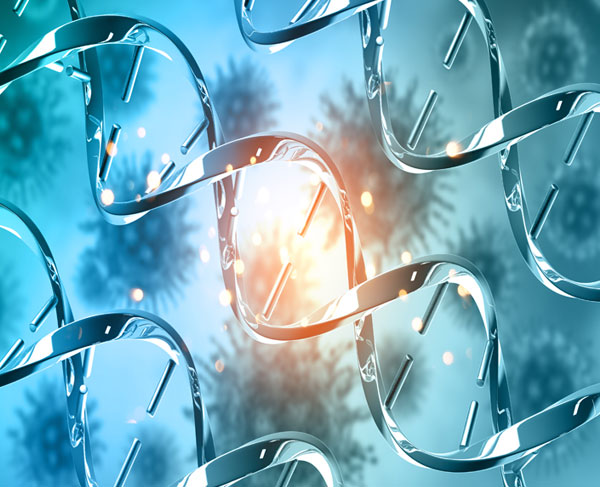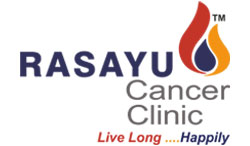Cancer Types
- Bladder Cancer
- Bone Cancer
- Breast Cancer
- Cervical Cancer
- Colorectal Cancer
- Endometrial Cancer
- Head & Neck Cancer
- Kidney Cancer
- Laryngeal Cancer
- Leukaemia
- Liver Cancer
- Lung Cancer
- Multiple Myeloma
- Nasopharyngeal Cancer
- Non-Hodgkin's Lymphoma
- Oesophagus Cancer
- Oral Cancer
- Ovarian Cancer
- Pancreatic Cancer
- Prostate Cancer
- Skin Cancer
- Stomach Cancer
- Testicular Cancer
- Thyroid Cancer
Opening Hours
- Monday - Saturday 10:00 am - 7.00 pm

Testicular Cancer
Testicular cancer is cancer that develops in the Testicles.
This type of cancer ranks 28 th and amounts to 0.39% of the total cancer patients annually.
The death rate stands at around 0.1% as per Globocan 2018 report.
For men with cancer that was detected at the early stage and the spread restricted to the testicles, the survival rate is 99%, cancer that has spread to the retroperitoneal lymph nodes, the survival rate is about 96%, and advanced cancer that has spread outside the testicles to areas such as the lungs or other organs, the survival rate is 73%.
Over a lifetime, the risk of developing Testicular cancer is roughly 1 in 200.
It is mostly found in males of age group 20–39 years.
Types of Testicular Cancer :
There are 2 main categories of germ cell tumors that start in the testicles.
1. Seminoma. A tumor which is structurally 100% made up of seminoma growth.
2. Non-seminoma. A non-seminoma contains 1or more of the following types of tumor :
– Choriocarcinoma
– Embryonal carcinoma
– Yolk sac tumor
– TeratomaOther, less common types of testicular tumors include:
– Leydig cell tumor
– Sertoli cell tumor
– Carcinoma of the rete testis, which is a part of the testicles
– Testicular lymphoma
Causes
Till date exact causes of Testicular cancer are not fully understood. However, we know several factors that can increase risk of developing the condition. These are-
- Undescended testes.
- Carcinoma in Situ (A group of abnormal cells that can turn into cancer).
- Fertility problems.
- Poor sperm quality.
- Family History.
- Abnormality of penis and urethra.
- Umbilical hernia.
- HIV or AIDS.
- Testicular injury.
- Vasectomy.
Specific carcinogenic factors with sufficient evidence
- No carcinogenic factors were found.
Specific carcinogenic factors with limited evidence
- DDT
- In utero exposure to Diethylstilbestrol
Signs and Symptoms
- A lump or swelling in the testicle (Most common symptom).
- Discomfort in testicle or scrotum.
- Pain in the testicle or scrotum.
- Heaviness in scrotum.
- Tenderness or hardness in the scrotum.
- Backache (In advance stage).
- Dull pain in lower abdomen (In advance stage) etc.
Investigations / Screening
- Physical examination and history-If a person notices a few symptoms mentioned earlier he is examined to confirm the diagnosis while examining the testicles along with the spermatic cord and the scrotal skin.
- Ultrasound. This uses sound waves to create a picture of the internal organs. The sound waves produced by the ultrasound bounce off tissue in the scrotum and the echo thus created produces images which are interpreted. These images of the testicle help the doctor find any tumors or other abnormalities. A tumor visible to the ultrasound can depict its size, location, and solidness. A solid tumor inside the testicle is likely to be cancerous.
- Biopsy – A piece of the tissue of the affected area is collected and tested to see the cellular structure and verify if it has cancerous cells.
- PET scan/MRI/CT scan – PET scan is done to the extent of spread of the disease within the organ and beyond. MRI/ CT scan are done to analyse further the type of cellular structure for better choice of drugs for the treatment.
- Biomarkers – The levels of serum tumor markers are measured before surgery to
remove a testicle. They are substances made by a cancer that are found at
abnormally high levels in the blood of some people with cancer. For testicular cancer, serum tumor marker levels are used to find out the cancer’s stage and confirm whether a tumor is a pure seminoma. - Blood tests like AFP – Alpha Feto Protein, HCG – Human Chorionic Gonadotropins, LDH – Lactate Dehydrogenase. Higher levels have an adverse prognosis.
Treatment
- To plan personalised treatment for each individual patient as every individual is different even if they have the same type of cancer.
- To improve health related quality of life (QOL) in all types and stages of cancer patients.
- To plan for partial or total regression of tumour depending on the nature of tumors.
- To increase overall survival (OS) of patients.
- To increase disease free survival (DFS) where complete resection of tumour is achieved.
- To provide a treatment option to patients who are refractory to conventional treatments like chemotherapy / radiotherapy / immunotherapy etc.
- To reduce the rate of growth of the tumor in recurrent and advanced staged cases.
- To increase progression free survival in advance cases.
- To reduce impact of symptoms related to progression of disease.
- To improve confidence of patients.
- To provide palliative support in end-of- life cancer cases.
- To add happiness and extension of life to cancer patients.
- To compliment other therapies like chemotherapy, radiotherapy in a synergistic way.
- To reduce severity or adverse effects of other conventional treatment. This reduces incidence and frequency of hospitalization.
- It is pertinent to note that Rasayu Cancer Clinic does not claim or blame anything while communicating any aspect to cancer patients.
- Rasayu Cancer Clinic focuses on Ayurveda fundamental based therapies.
- Rasayu Cancer Clinic believes in continuous improvement in service and science.
- Rasayu Cancer Clinic always advocates patient centric approach which leads to long and happy life of cancer patients.
- Every patient has a right to choose the therapy.
- Rasayu Cancer Clinic never imposes Rasayana therapy on patients but helps them to take the right decision, hence making patients/ relatives well aware about the disease and possible outcomes along with its risk benefit and cost benefit ratios.
- Rasayu Cancer Clinic is well connected with global updates in cancer care and therapies, through advisors and collaborations with national and international institutes.
Treatment of Testicular cancer depends on its stage –
- Stage 1 (Tumor confined to testis)
– Only surgery- Inguinal orchidectomy with insertion of testicular prosthesis. - Stage 2 (Enlarged retroperitoneal or pelvic lymph nodes)
– Surgery with Radiotherapy or Chemotherapy. - Stage 3- Surgery with Chemotherapy.
Surgery
- Surgery is normally conducted to remove the testicles.
- Problems after surgery in testicular cancer – Click Here
Chemotherapy
- This is administered only if the cancer has spread beyond the testicles to other organs as found in the PET scan.
- Post surgery chemotherapy is also used but has little effect on the prognosis.
- Possible side effects of chemotherapy – Click Here
- Side effects of Chemotherapy – Click Here
- Adverse drug reactions (ADRs) of Chemotherapy – Click Here
Radiation Therapy
- Radiation therapy may be recommended for men with early-stage seminoma or secondary affecting the brain.
- Side effects of radiotherapy in testicular cancer – Click Here
Rasayu Cancer Clinic Rasayan Treatment Protocol – To know more please click here
Rasayu Therapy is recommended for those :
- Who voluntarily opted for this treatment as their first choice.
- Who are disenchanted with the past treatments.
- Who do not see any other options of treatments.
- Who are looking for personalized treatment plan.
- Who desire a convenient home-based oral therapy which is easy to consume.
- Who are susceptible to acquire hospital borne infections/ complications, hence not willing to be hospitalised.
- Who are looking for favourable risk benefit ratio.
- Who desire to improve Quality Of Life benchmarks based on global standards and monitored regularly.
- Who are involved in decision making for choice of treatment.
- Who are willing to be involved in monitoring the efficacy of Rasayana Therapy.
- Who believe in the transparency of the process by conducting regular investigations by biochemical parameters/ hi tech imaging techniques like PET scan etc.
- Who are equally sensitive to the patient, the care givers and the family.
- Which can be taken with other treatments including Chemotherapy / Radiotherapy.
Disclaimer : This Website contains certain links such as You Tube links, research paper links / website links / audio visuals / internet information already available in public domain. The information contained in the audio visuals is meant for use by qualified Medical Professionals. The content of the links etc has been made available for informational and educational purposes only. Rasayu Cancer Clinic and its associates do not make any warranties with respect to the accuracy, applicability, fitness, or the completeness of the content of such links etc. The information contained in such links represents the views and opinions of the original creator of such links and are not views endorsed by the Rasayu fraternity.


